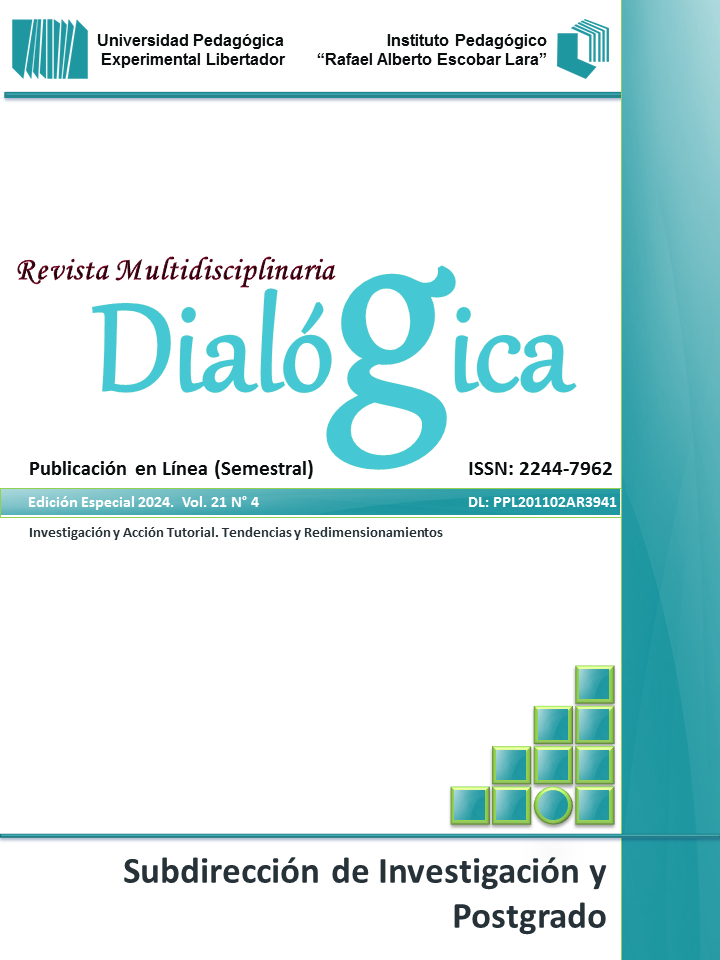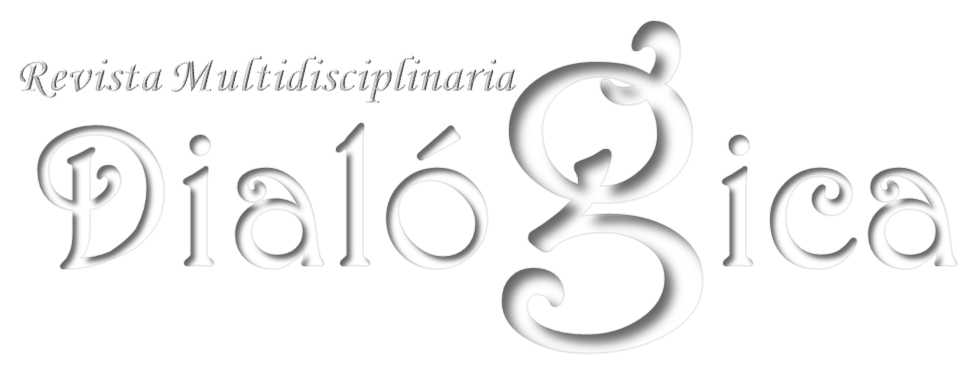TREND PROFILE OF TUTOR AND THESIS RESEARCHERS IN THE INQUIRYING KNOWLEDGE OF THE 21 ST CENTURY
DOI:
https://doi.org/10.56219/dialgica.v21i4.3305Keywords:
Profile, researcher tutor, thesis researcher, trendAbstract
The research path is complex. One might think that it would only try to carry out a study following existing methodological processes; However, within this journey that involves the fusion of two horizons: tutor and thesis student, a support network is interwoven, which makes this journey a challenge. This article aims to elucidate the profile of both the tutor researcher and the thesis researcher that the 21st century demands; The initiative arises from the experiences of the authors exercising both positions, in addition to their vividness in the postdoctorate in tutorial training research, for this, understandings are incorporated that build complementary bridges in the investigative and tutorial action, of this era. The call is to be an exemplary tutor-thesis researcher who makes a difference in his or her daily personal-professional actions, successfully impacting high-level productions and socio-educational, family, and community impact.
References
Arundel, H. (1967). La libertad en el arte. Grijalbo.
Canales. E. (2004). El perfil del tutor académico. http://docencia.uaeh.edu.mx/estudios-pertinencia/docs/hidalgo-municipios/Hidalgo-El-Perfil-Del-Tutor-Academico.pdf
De Sousa, B. (2008). La universidad en el siglo XXI para una reforma democrática y emancipadora de la universidad. Centro Internacional Miranda.
Hermoso, V. (2007). La realidad como fuente de teoría. Orituco.
Hermoso, V. (2023). Los seminarios de investigación. Material no publicado. Universidad de Carabobo.
Kelle, V. y Kovalson, M. (1967). Particularidades del arte como forma de la conciencia social, 139-159. En La libertad en el arte.
Leal. J. (2005). La autonomía del sujeto investigador y la metodología de investigación. Litorama.
Morillo, F. (2013). Fundamentos de orientación. Una perspectiva teórica desde la tríada trasfiguracional: aisthésis, poiésis y katharsis. CISCOYT. Serie Estudios sociales transcomplejos: Valencia – Venezuela.
Mujica, J. (2013). César Rengifo a viva voz. Fondo Editorial Fundarte.
Padrón, J. y Camacho H. (2000). ¿Qué es Investigar? Una respuesta desde el enfoque epistemológico del racionalismo crítico. Telos, 2 (2) 314-330, https://ojs.urbe.edu/index.php/telos/article/view/1865
Ramírez, O. (1994). Hacia una nueva creatividad. Colección: Ciencias Sociales. Serie: Psicología: Consejo de Publicaciones
Real Academia Española (2023). Diccionario de la lengua española (23a. ed.). [Versión en línea]. https://dle.rae.es.
Ruíz, C. (2006). Cómo llegar a ser un tutor competente. Santillana.
Victoriano, G. (2020). Qué es ser tesista: de la fantasía a la realidad. https://publicaoperece.com/4bmj93e7jrb4gk6n5ztj5a9j3lwcdl/
Downloads
Published
How to Cite
Issue
Section
License
Copyright (c) 2024 Alirian Rodríguez , María Navarro

This work is licensed under a Creative Commons Attribution-NonCommercial-ShareAlike 4.0 International License.


 @revistadialogica
@revistadialogica DialogicaUPEL
DialogicaUPEL RevistaDialogicaUPELMaracay
RevistaDialogicaUPELMaracay dialógicaupel@gmail.com
dialógicaupel@gmail.com dialogicaupel.blogspot.com
dialogicaupel.blogspot.com https://issuu.com/dialogicaupel
https://issuu.com/dialogicaupel https://revistas.upel.edu.ve/index.php/dialogica/
https://revistas.upel.edu.ve/index.php/dialogica/









